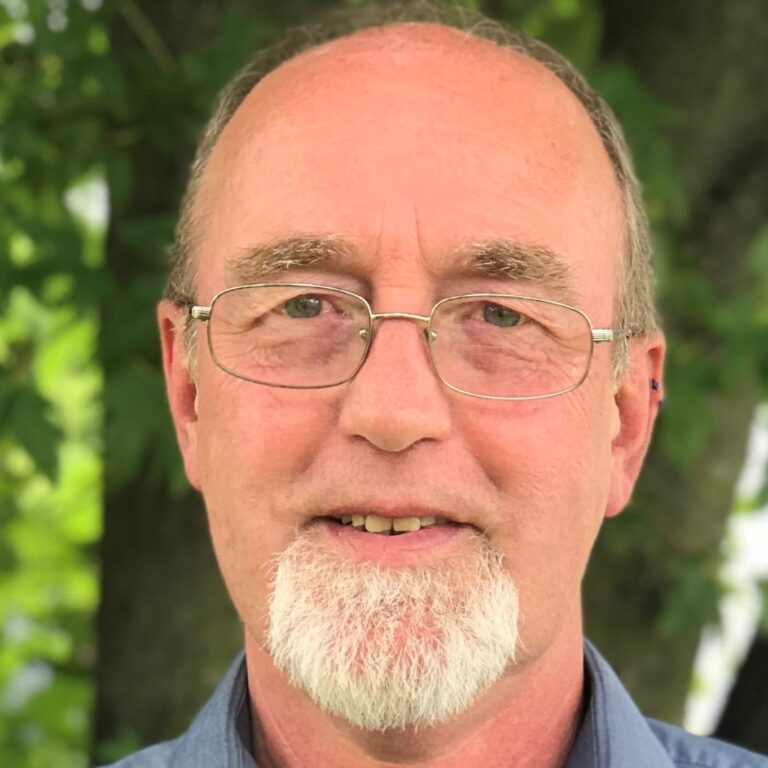Choosing a mental health provider can feel like an uphill battle. Suddenly, you’re thrust into a world of credentials, encountering a dizzying collection of titles, degrees, and acronyms that make it difficult to decide who’s best suited for you. How do you pick? What’s the difference between them all?
A therapist’s credentials matter — they determine their approach when helping you deal with your mental health concerns. If you’re looking for practical mental health help and solutions, a Licensed Mental Health Counselor (LMHC) may be suitable for you.
This article will explain who an LMHC is, their qualifications, and why they can be a great option when looking for a therapist. It’ll also cover what sets them apart from other providers and offer practical tips to help you choose one.
What is a Licensed Mental Health Counselor (LMHC)?
LMHCs are credentialed professionals authorized to provide mental health counseling and substance abuse treatment. An LMHC’s education and training lean towards patient-centric therapy and practical solutions. It allows counselors to work directly with individuals and groups in various settings, including schools, hospitals, residential facilities, and private practices.
Unlike other mental health practitioners, LMHCs are highly pragmatic. They specialize in providing practical solutions to help patients immediately rise above their circumstances. Depending on the state, LMHCs are also known as Licensed Professional Counselors (LPC).
LMHC Education and Training Requirements
An LMHC is a highly trained therapist with multiple degrees, holding many years of hands-on clinical experience. The rigorous education and training requirements equip them with the knowledge and skills to help people overcome their mental illnesses. While the specific requirements may vary between states, the career path of an LMHC is well-defined.
Bachelor’s Degree: Earning a bachelor’s degree in psychology or a related discipline is the first step towards becoming an LMHC.
Advanced Degree: After completing the first degree, an LMHC must pursue a master’s degree in psychology or a related discipline from an accredited program. The coursework covers human behavior and development, ethical practice, and effective counseling strategies. Some LMHCs opt to pursue a doctorate after completing their master’s degree.
Clinical Experience: Upon completing an advanced degree, an LMHC must complete at least 3,000 hours of supervised clinical experience within two years. An LMHC will gain hands-on experience diagnosing and treating mental illnesses while working directly with patients under the supervision of a licensed professional.
State Licensing Board Exam: After a successful clinical experience, an LMHC must sit and pass the state licensing exam. The National Counselor Examination for Licensure and Certification (NCE) and the National Clinical Mental Health Counseling Exam (NCMHCE) are the most common board exams.
State Licensure: After acing the state board exam, an LMHC can apply for a practicing license from the state and commence seeing patients.
An LMHC is a highly trained therapist with multiple degrees, holding many years of hands-on clinical experience.
Even after this rigorous training, an LMHC must keep learning. License renewal is subject to state guidelines and taking continuing education units.
Armenta Acevedo, a Licensed Mental Health Counselor (LMCH) with Grow Therapy, explains the practicality of working with a counselor:
“Counseling offers a structured and goal-oriented approach to addressing mental health concerns. Clients acquire practical coping skills to manage stress, anxiety, and other emotional difficulties. These tools can be applied in real-life situations, empowering individuals to cope effectively with everyday challenges.”
Areas of Expertise
LMHCs share a desire to help people build happy and fulfilling lives and will often niche down to provide specialty services, including the following specialities:
- Mental health counselors
- Marriage and family therapists
- Substance abuse counselors
- Behavioral disorder counselors
- Grief and depression counselors
- School and child therapists
This isn’t an extensive list — LMHCs vary widely in their specializations, offering a range of services tailored to specific populations and conditions.
Therapy Services Provided by LMHCs
After assessing a patient, an LMHC will determine the best treatment approach. They’ll select one or more therapeutic modalities to help patients optimally address their mental health concerns. Popular therapy services that LMHCs use include:
Cognitive Behavioral Therapy (CBT): CBT focuses on the connection between thoughts, emotions, and behaviors. It’s based on the premise that thoughts influence your feelings and actions, and seeks to help patients identify and change their unhelpful thought patterns. CBT entails setting specific goals, challenging negative thoughts, and developing practical strategies to change behaviors.
Psychodynamic Therapy: This form of therapy seeks to explore the unconscious processes and unresolved conflicts that may influence your thoughts, emotions, and behaviors. A therapist will help you sift through your thoughts to identify the root cause of the negative thought patterns.
Eye Movement Desensitization and Reprocessing (EDMR): This therapeutic approach helps in the treatment of PTSD and trauma-related issues. It uses eye movements to reduce the emotional distress of processing traumatic memories. Patients perform repetitive eye movements for about 30 seconds while recounting their ordeals. The process provides a dual simulation that makes the memories less painful and more bearable.
Dialectical Behavior Therapy (DBT): Initially developed to treat borderline personality disorder (BPD), DBT combines cognitive-behavioral techniques with mindfulness practices. It focuses on helping patients regulate their emotions, manage distress, and improve interpersonal relationships. A therapist will help you learn and develop new coping skills and strategies to overcome unhelpful thoughts and behaviors.
Licensed mental health counselors often use psychoeducational techniques to accelerate progress. These therapeutic interventions enhance an individual’s understanding of their mental illness. It entails educating clients about their conditions to increase self-awareness and empowering them to take charge.
Your therapist will share helpful information to dispel myths and misconceptions while equipping you with practical skills to manage the condition. Psychoeducation often ropes in family members to ensure a better outcome.
LMHCs vs. Other Mental Health Professionals
An LMHC works directly with patients grappling with emotional or behavioral concerns. Here’s a further look into how they compare to other mental health providers:
LMHCs vs. Clinical Psychologists: An LMHC holds a master’s degree in counseling or a related field, while a clinical psychologist holds a doctorate in clinical psychology. Further, LMHCs provide counseling and psychotherapy services, while clinical psychologists have a broader scope of practice, including conducting psychological assessments, teaching, and research. A clinical psychologist may offer higher diagnostic capabilities than an LMHC.
LMHCs vs. Psychiatrists: An LMHC typically holds a master’s degree in mental health counseling, while a psychiatrist is a licensed medical doctor with additional psychiatric training. A psychiatrist must complete a four-year residency training in psychiatry after completing their medical degree. Unlike LMHCs, who are licensed to provide therapy, psychiatrists can diagnose and treat mental illnesses and prescribe medication.
LMHCs vs. Psychologists: While an LMHC holds a master’s degree in mental health counseling, a psychologist typically has a doctorate in psychology, usually a Ph.D. (Doctor of Philosophy) or a Psy.D (Doctor of Psychology). Besides the clinical hours, an LMHC spends about seven years in school, whereas psychologist training may take up to 14 years. A doctorate takes five to seven years, and the advanced training allows psychologists to offer a broader scope of mental health services than an LMHC.
LMHCs vs Psychotherapists: Psychotherapist is a broad term for mental health professionals, including LMHCs, clinical psychologists, social workers, psychiatrists, and more.
The Benefits of Seeing an LMHC
Like other medical health professionals, an LMHC provides a safe, enabling, and non-judgmental space where patients can unburden themselves and face their fears.
However, seeing an LMHC has one distinct advantage — your therapist will err on the practical side. Since an LMCH’s training is more client-centered and less illness-centered, they prioritize pragmatism and focus on fixing the problem.
According to Counseling.org, counselors are problem-solvers who find ways to fix the problem and meet your needs. They work with you to find realistic solutions that you can apply and start fixing your life right away.
This approach makes an LMHC uniquely placed to help you take charge of your mental health when facing a crippling problem. Besides helping you understand your negative thoughts and unhealthy behaviors, they equip you with the skills to change and overcome them.
You will learn practical skills and coping strategies to manage emotions and navigate challenges. They may include stress management strategies, relaxation exercises, mindfulness practices, problem-solving techniques, and communication skills. The ultimate goal is to help you take an active role in your mental health while developing the ability to cope with life’s challenges.
Common Concerns Addressed by LMHCs
An LMHC is trained and licensed to diagnose and treat various mental health illnesses, including:
- Anxiety disorders
- Depression
- Trauma and post traumatic stress disorder
- Eating Disorders
- Substance abuse and addiction
- Obsessive-compulsive disorder
This is not an exhaustive list — LMHCs frequently work with clients across the wide spectrum of mental health concerns, catering their their therapeutic approaches to each.
Beyond clinical mental health concerns, people commonly consider therapy when they need help to cope with negative life transitions, such as bereavement, grief and loss, or relationship issues. But you may seek help when facing any life transition — large or small, planned or unplanned, positive or negative — because they can all prove overwhelming.
What to Consider When Selecting an LMHC
Building trust is the cornerstone of successful therapy treatment, so choose your counselor carefully by considering the following:
Credentials: Ensure the therapist holds a current license and is authorized to provide mental healthcare services. Confirm a therapist’s credentials by checking their educational background, certification, and licensure status.
Specialization: Since LMHCs have various areas of expertise, you should pick a therapist who specializes in the specific conditions you wish to address. Choose one with extensive training and experience as it influences the quality of care.
Therapeutic Approach: There are no hard rules about therapy modalities, and therapists are free to choose their approaches. It’s helpful to question your therapist about their approaches and the rationale behind them.
Personal Fit: Do you feel heard, seen, and understood by your therapist? Use the initial consultation to determine if a therapist makes you feel comfortable. Building trust and rapport with your therapist is important for a fruitful therapeutic relationship.
Costs: Typically, the price varies by location, credentials, therapy modalities, and other factors. Be sure to pick a pricing point that allows you to comfortably pay for all the sessions. If affordability is an issue, consider locating a therapist who accepts the sliding scale payment model or takes your insurance if you have it. You can use Grow Therapy to help you find one.
Location: Your location matters because it influences both the cost of therapy and the therapist’s availability. Some areas are more expensive, while others lack qualified therapists. Online therapy can help you overcome geographical limitations.
Find an LMHC with Grow Therapy
Grow Therapy makes finding a suitable LMHC simple. Through our search tool, you can find a therapist who is in your area, accepts your insurance, and specializes in your specific area of need. Further, you can reach out to the therapist on-platform with any queries you may have.

